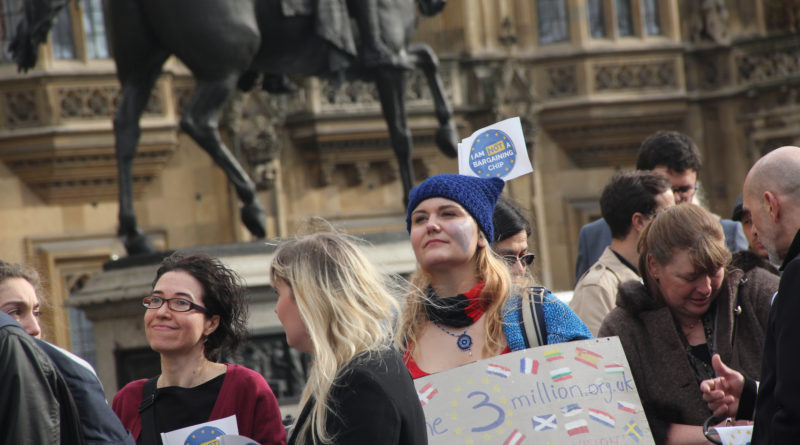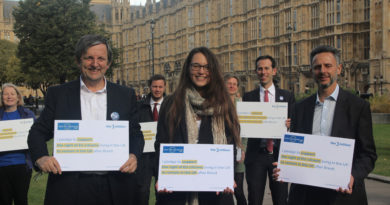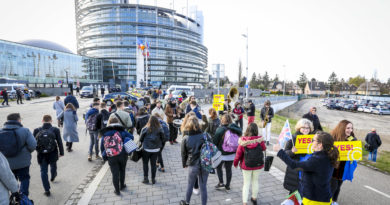Permanent Residence and the power of bureaucracy
Friday night at a pub in London’s lively Hoxton area, I am meeting a group of Romanian friends: a young academic, an account manager for a large British charity, a marketing officer for an IT firm. Together we are what policymakers would call “highly skilled migrants”: comfortably employed, graduates of Russell Group universities, lucky to be wielding sufficient social and cultural capital to have long stopped feeling like we had to routinely scramble for pieces of paper to prove the legality of our presence in the UK.
For all the foreignness still betrayed by our accents in personal encounters, at the level of state bureaucracies our foreignness had become almost invisible. Ever since Romania and the UK adopted electronic passports, few of us had been asked to account for ourselves when crossing borders. The memory of having to prove a right to work faded along with the expiration of transitional immigration controls in 2014, and few could remember having to demonstrate our right to access university or medical services.
Yet it was not long until our conversation over drinks that Friday night turned into an intense, ad hoc immigration advice session on the ominous topic of how to acquire permanent residence in the UK, and beat some of the uncertainties unleashed by the referendum.
The UK’s vote on June 23rd 2016, I have noted in an earlier blog post, had done much to reconfigure migrants’ sense of belongingness. The leave campaign(s) seamless blending of a well-rehearsed anti-migrant discourse into Euroscepticism at large, unexpectedly pushed students, the highly skilled, and other “good migrants” who had previously fallen below the radar of tabloids, into the category of otherness previously reserved for the mobile poor.
As it began to increasingly look like the Government was heading towards a “hard Brexit”, and that no guarantees would be made for any EU nationals residing in the UK, for many of my highly skilled colleagues, and indeed myself, what was initially a sense of shock and disappointment at the referendum results, turned into a real anxiety over how to secure our stay in the UK.
That Friday night in East London was but one of countless instances where casual conversations turned into debates over the minutiae of the permanent residence application. For those of us who had been in full time education at any point during the past 5 years, nothing created more confusion than the need to demonstrate that, for the duration of our studies, we had Comprehensive Sickness Insurance (CSI).
CSI is required under EEA regulations for all migrants who exercise a treaty right as students or self-sufficient individuals. Since these are economically inactive groups who do not pay any social security, the CSI is designed to compensate the country of residence for the cost of providing them medical assistance.
The source of anxiety for my colleagues, and indeed for me, had come from the fact that up until the point when the prospect of “hard Brexit” made obtaining permanent residence a strategic necessity, few of us had even heard of the term. Neither our universities, nor the medical practitioners we had routinely consulted over the years spent in the UK, had ever raised the subject.
The only time I had seen the CSI mobilised in practice was during fieldwork. Immigration officers demanded it from “undesirables” – Romanian migrants who conducted cash in hand jobs for bosses that picked them up from the streets of North London, and who had been the subject of complaints to the council on account of loitering or homelessness. As few of them could ever prove evidence of CSI, or acquire the documentation showing formal employment, they failed to demonstrate that they were exercising a treaty right as self-sufficient individuals or workers, and could thus be conveniently sent home.
This, I thought at the time, was a deeply unfair deployment of hidden bureaucracy against a vulnerable group, whose foreignness had been rendered all too visible by the poverty inscribed in their clothes, their masculinity, and their way of congregating. But I never thought it would also come to affect those who, like the group in the Hoxton bar, had for years blended into the narrative of a sanitised, economically productive citizenry.
Unexpectedly, just as the Euroscepticism unleashed by the referendum disrupted the sense of belongingness of “good migrants”, the requirements for permanent residence disrupted the invisibility of their foreignness to the state. This was no longer just a discursive reconfiguration of “us” and “them”. For the first time, the unanticipated need to engineer CSI subjected “good migrants” to the type of existential insecurity previously experienced only by the most precarious.
For applicants who were students or economically inactive during any of the 5 year qualifying period, the absence of CSI leads to rejection. Given how the government refused to guarantee their rights after Brexit, the inability to acquire permanent residence before the 2 years of Brexit negotiations expire puts their capacity to continue living in the UK into question, regardless of how able to blend in they had been thus far.
This raises a number of questions. Left-leaning newspapers in the UK have expressed outrage at the rejections experienced by highly skilled migrants, even though the administrative removal of the poor has been long practiced. This speaks about the public’s selective ability to recognise vulnerability. But it also sheds light on the unpredictable violence of bureaucracy, and its ability as a medium to create unanticipated vulnerabilities.
The real insecurity inherent in the CSI comes from the difficulty of backdating it. The guidance for permanent residence states that CSI can consist of a European Health Insurance Card (EHIC) obtained from the country of origin (which in Romania’s case had to be renewed every 6 months), private health insurance, or a certificate of entitlement to health care issued by the health insurance authority from the country of origin (forms S1, S2 or S3).
As the EHIC and private insurance are only issued prospectively, most of our efforts to engineer the CSI were focused on obtaining a certificate from Romania. This is where the unpredictability of the medium became apparent. I for one had been advised by the NHS Overseas Department to obtain 2 copies of the form E106, in English (even though this form was not among the options on the Home Office application). Upon asking my health insurer in Romania, I was in fact issued 1 copy, in Romanian, of a different form (E104, which also did not feature among the forms listed on the application). Throughout this process, from finding out what to send and whom to contact, to arranging rushed journeys back home to long neglected GPs, and sweet-talking employees of the health authority, the sense of anxiety was indisputable.
It was the same paradoxical unpredictability of the medium that prompted me and my friends to resort to the kinds of artifices I had only encountered in ethnographies of informal economies under socialism, and in my fieldwork with Romanian migrants in precarious work. One suggested bribing a private health provider in exchange for backdated coverage. Another offered to ask a trusted connection in the Romanian health authority to issue E104 certificates for close friends. Another still suggested (falsely) registering for self-employment in the UK, paying a 4 figure fee for backdated registration, as well as thousands in NI contributions for years back. The logic of “desperate times call for desperate measures” was very much in the air.
Those less comfortable with rule-bending resorted to what I call “artisan bureaucracies”: personalised, creative attempts to earn the benevolence of their imagined assessors, developed to mitigate the uncertainty of hard evidence. “Is it true that they are less likely to accept you if you have taken out credit?”, asked one of my friends, who was already preparing her application for September 2017. “Perhaps I should just pay it all off now”, she added minutes later, “just in case”. The logic of “just in case” was familiar to many of us, just like the logic of “you can never be too sure”. Some recalled sending unnecessarily thick applications, containing every tenancy agreement, pay slip, and bank statements for the past 5 years of their lives. Unsure whether the form issued by the health authority would match the Home Office requirements, I too found myself making every effort to neatly label the paper trail of my life, signing my cover letter with “Doctoral candidate”, and hoping that the symbolic capital of the university would distinguish me once again as “good migrant”.
The prospect of “hard Brexit” and the undifferentiated subjection of all EU nationals to the bureaucracy of permanent residence thus seem to have created an unexpected closeness between European migrants who had previously occupied very different positions in the British public imaginary. For once, the highly skilled find themselves sharing into some of the existential insecurity which precarious workers experience routinely. While, as in my earlier entry, I do not wish to suggest that they are equally equipped to navigate this landscape of uncertainty, the new anxieties generated by the CSI among the highly skilled offer interesting lines of inquiry.
Firstly, they cast light on the power of bureaucracy to create unexpected vulnerabilities which defy the subject positions of “good” and “bad” migrants created by public discourse. Secondly, the similarity in “artisan bureaucracies” deployed by the highly skilled and precarious alike, with their rule-bending and hopeful aestheticisation of paper, also opens a space for examining the reconfiguration of these hierarchies in practice. Finally, it will be interesting to observe whether this moment of shared insecurity will generate a cross-class political front that will protect all EU migrants, or whether concessions will only be granted for the highly skilled. Overall, the new insecurities generated by the permanent residence application and its sneaky CSI component offer a stimulating case for researching the power of bureaucracy, shifting subject positions, and new political unities.
Dora-Olivia Vicol, Doctoral Researcher in Social Anthropology at the University of Oxford.
This article was original published on the blog of the University of Oxford’s Centre on Migration, Policy and Society (COMPAS), 13 Feb 2017.
Photo: Claudia Delpero © all rights reserved.




